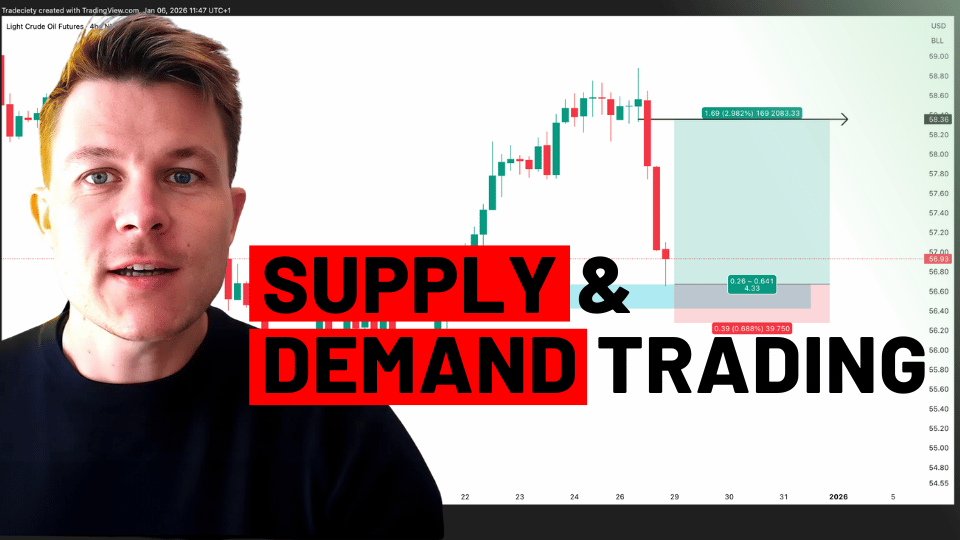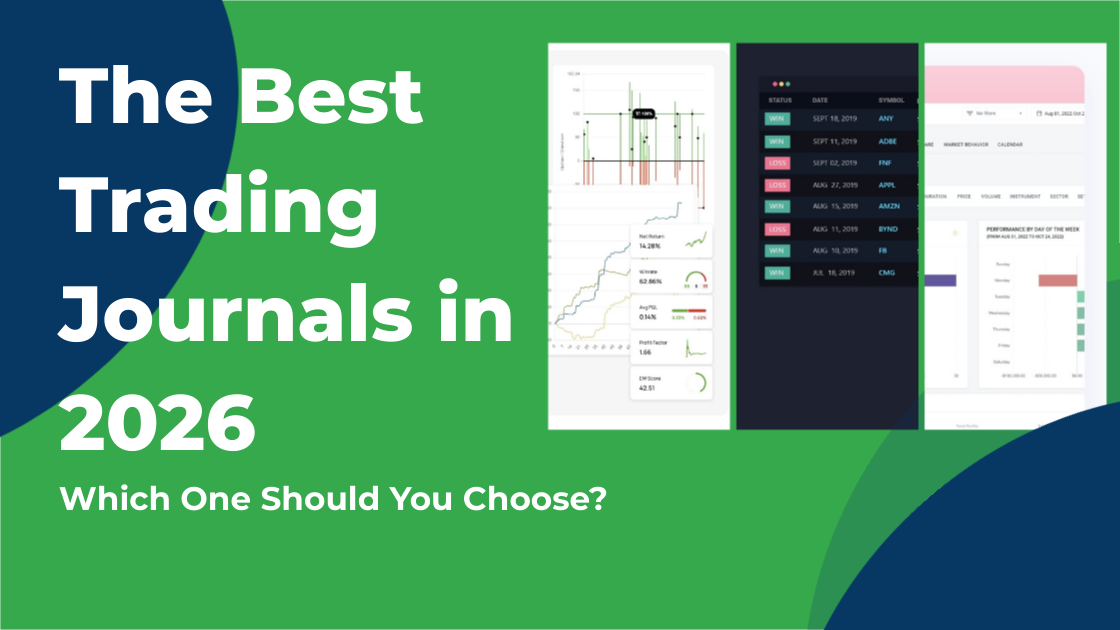Supply and Demand Trading in 2026
We have been trading supply and demand strategies for over ten years, and they have stood the test of time remarkably well. Supply and demand is...

Most people don’t even think about this, it’s not even a choice for them. Can you still remember how you got into trading and why are you trading the way you are trading today? Are you sure there isn’t a market and/or trading strategy out there that fits your personality better, and that that isn’t one of the reasons you are struggling?
First things first, I am not advocating system or market hopping, timeframe flipping etc. What I do say, however, is, that if you have been in this game for a while (3+ years) and still don’t see a light at the end of the tunnel, maybe it’s time to look for gold somewhere else – a different strategy, a different market, or an entirely different approach.
Because I am quite sure that most of you don’t have a good answer when I ask you “why are you taking this particular approach to trading in this particular market and on this specific timeframe?”
The answer to this should be well thought-out and sophisticated, however, the truth is that most answers would probably be something like “I don’t know, it just happened”. Because when you first got into touch with trading, it was because of a friend or an advertisement, and then you simply stuck with whatever you learned during those first few days.
When I first started out, of course, I day traded the EURUSD with a moving average strategy on MT4. Why Forex? Because leverage sounded so sexy, it was easy to open a broker account, minimum lot sizes were tiny and the minimum deposit was low. Why moving averages? I didn’t understand any of the other complicated indicators. Why MT4? For free, easy to use and was given to me by my broker. Why EURUSD? The most liquid instrument in Forex! And small spreads!
So many dumb reasons, of which the dumbest was to trade the EURUSD. Back then it was already so driven by HFT outfits – and thus, erratic moves – that it was basically a meatgrinder for newer but also more seasoned traders, just as it is nowadays. Took me 6 months or more to figure out that maybe I should take a look at other instruments before making the decision to stick with a particular monster.
In life, often we don’t have a choice. In trading, we have tons of choices. In fact, trading is one gigantic game of choice. Why wouldn’t you take advantage of that?
Alas, in order not to get stuck for no apparent reason, here are a few questions you should ask yourself right now in order to make an informed decision about what are the best market and trading style for you.
Four Vital Questions To Ask
This is a huge one. Many people overestimate the difficulty of coding and thus opt to never even look at algorithmic trading, even though with scripting languages like EasyLanguage it is so easy to start testing ideas in just a few minutes. Coding my first simple strategy took me a day, now I can test even complex ideas in a matter of minutes, and I am definitely not a maths or programming genius. If you trust a Tesla to drive you home, why wouldn’t you trust an algorithm to execute your trades? Think about this. If you enjoy watching charts and love to analyze trades, manual trading is for you, if not, take a look at algorithmic trading. Also, in my opinion, most people reading this are systematic discretionary trades and use the “discretionary” part of their system (if they have one) to mess with their rules and destroy their performance. Be honest, you know you are doing it.
This is the second big question about your trading career. Many start out as day traders, which is probably the worst choice. The risk-to-reward ratio is just horrible – risk being your time invested and reward being the chance that you become profitable in 3-5 years or less. When you start out trading, most of your time should be invested in studying and analysis, however, as a day trader, you will spend most time trading. But there is no learning by doing in trading, you HAVE to do pre- and post analysis of your trading or you will tread water forever. Also – do you have a family? How do you want to trade after your day job when there are still people to take care of in your life? For 90% of you, or even more, day trading will just not work and the 4-hour charts or daily charts will do much better. Also, you can keep your job and use trading as a side income, for example, on the daily charts, and have two income sources or more – something that I recommend for EVERY trader anyway. Another problem with day trading is the psychological aspect – you will experience swings and drawdowns in a much shorter amount of time, which adds additional stress. Not something you want, especially when you are starting out. Last but not least, trading higher timeframes allows you to be your own boss – day trading means you have to be there each and every day at the same time, rain or shine.
This is largely a matter of personality – I love to trade breakouts and pullbacks, it just feels right. If you feel anxious when buying new all-time highs, maybe this is just not for you and you should look into reversals, instead. Just remember, never try to pick tops and bottoms – wait for the price to turn and confirm. Also, lots of traders feel much better going into one than the other direction. I love longs, shorts make me feel anxious. There is a trader, however, in my day trading class, that goes short 80% of the time and has a win rate of around 90% on those shorts, but only a 50% win rate on longs. You see, knowing yourself pays off. You can then work on your flaws, or simply avoid similar situations in the future. Use a journal to discover these “anomalies” in your trading.
Go with that interests you and let that be your guide. I was never overly interested in becoming an “instrument specialist”, i.e. only trade Oil Futures and make that my main source of income, but there are traders out there doing just that. I always believed in diversity – I wanted to apply one strategy to many markets, which meant I had to become a setup specialist. That simply means I look through tons of markets and when my conditions apply to a particular instrument, I move in. Do balance sheets and earnings numbers bore you to death? Maybe trade something else than Stocks. Forex fundamentals are too complicated and global politics don’t interest you but you have an affinity for numbers? Look into Options. Technicals or fundamentals or both? Up to you, the best traders I know combine both. Futures rollovers give you headaches? Trade something else. And so on, there are tons of markets out there, tons of choices. Consider liquidity, trading times, information accessibility, costs of trading and legal framework (taxes etc.) when opting for a market and trading style (technical/fundamental/both). It doesn’t have to be Forex just because that is what you started out with, that is the worst reason, really.
You Trade What You Are
Asking only these 4 questions, you can already narrow down what trader you want to be. Never forget, a trading strategy/style should always be an extension of your personality – never try to fit your personality to a certain trading style, it’s just not gonna work. There are as many strategies as traders out there. Take what makes sense, discard what doesn’t, and eventually create your own unique approach to the markets which makes sense to you so you can trust it 100% even during times of hardship. As always, comment below, I’d love to hear your thoughts on this one.

We have been trading supply and demand strategies for over ten years, and they have stood the test of time remarkably well. Supply and demand is...

3 min read
Choosing the right trading journal is essential for traders wanting to analyze performance, refine strategies, and improve consistency. In this...

3 min read
“95% of all traders fail” is the most commonly used trading related statistic around the internet. But no research paper exists that proves this...